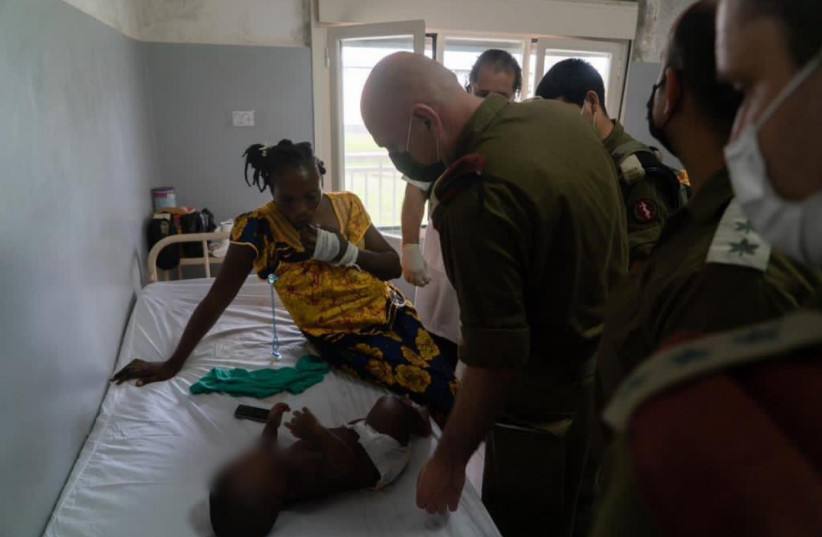Despite a tense but quiet year along Israel’s border with Lebanon, the head of the Northern Medical Command of the IDF continues to prepare his troops to treat wounded soldiers on the battlefield against Hezbollah.
“There is never a year that is quiet,” said Col. Avi Benov, command surgeon of the IDF Northern Command. “Next year presents us with many challenges, and from what I see, it will be difficult. There are always challenges, enemies that change, [and] us who are learning and changing, so we are always training.”
Benov has been in charge of all medical issues concerning troops in the Northern Command for the past six months. Over the past year, the command has been busy training for what many say is inevitable: war with Hezbollah.
Hezbollah has an arsenal of over 130,000 rockets and mortars aimed at the Israeli home front and thousands of operatives, many of them battle-hardened after fighting in Syria.
Hundreds of troops and civilians could be killed in any future war on the northern front, and the troops currently under Benov’s command will be responsible for treating frontline soldiers.

“We can always be better and we are always learning how to be even better,” he said, explaining that during the large-scale drills that have taken place troops have learned how to better evacuate wounded troops under fire and how to deal with multi-casualty incidents.
The way medical officers train has drastically improved in recent years, with hi-tech simulators, smart mannequins and other artificial and virtual-reality technology to help them prepare for scenarios that they might face.
According to Benov, in addition to the new technology used for training purposes, the Medical Corps has made a major change over the years. The average time to get a paramedic to wounded troops has gone down to around seven minutes.
“When I was a battalion doctor, decades ago, I was alone. Today, for example in the Golani Brigade, there is a doctor and two paramedics.”
Not only is there a high ratio of medical officers to fighters, but they also carry powdered, freeze-dried plasma given to the troops to clot blood and prevent troops from bleeding to death on the battlefield. They also carry TXA (tranexamic acid) that stabilizes a patient by coagulating blood.
In addition, medical forces can also perform surgeries if needed while on the battlefield, every helicopter belonging to the Israel Air Force’s 669 combat rescue and evacuation unit carries plasma.
“There is no army more advanced than the IDF in terms of medical care given on the battlefield,” Benov said. “We do things today that do not exist anywhere else. The fact that we have whole blood in 669 and in the Northern Command’s medical units, that’s like no other military in the world. There is also no technological medical device that we do not use either.”
According to Benov, bleeding out is the main reason for troops to die. About 25% of deaths in the military are preventable. And while the IDF has made huge strides in preventing some deaths, such as troops carrying tourniquets, there are still troops who will die during war.
“There are people whose injury is so severe that you cannot save them. As long as there are fighters on the battlefield there will be people that we cannot save,” Benov said.
Despite the technological advances in recent years, medical officers continue to prepare for what senior officials have warned will be a devastating war against Hezbollah.
“We are never ready. We have to train every soldier from the bottom up to train for the next war,” said Benov. “And seeing what is happening around us, it will be a challenge.”
